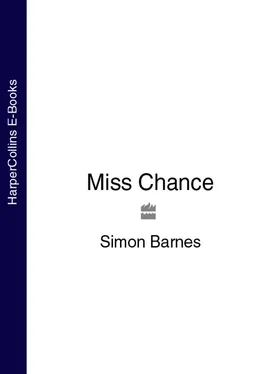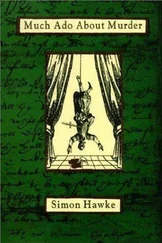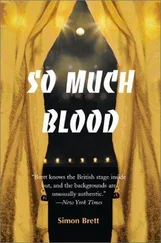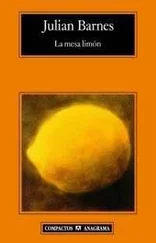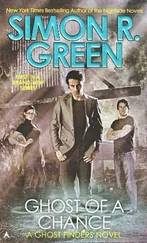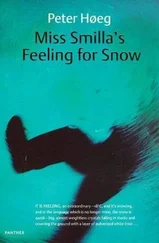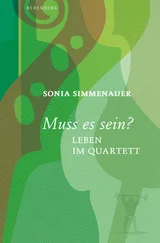This novel is entirely a work of fiction. The names, characters and incidents portrayed in it are the work of the author’s imagination. Any resemblance to actual persons, living or dead, events or localities is entirely coincidental.
HarperCollins Publishers Ltd.
1 London Bridge Street
London SE1 9GF
www.harpercollins.co.uk
First published in Great Britain by HarperCollins Publishers 2000
Copyright © Simon Barnes 2000
Simon Barnes asserts the moral right to be identified as the author of this work
An extract from ‘along the brittle treacherous bright streets’ is reprinted from Complete Poems 1904–1962 by E.E. Cummings, edited by George J. Firmage, by permission of W.W. Norton & Company. Copyright © 1991 by the Trustees for the E.E. Cummings Trust and George James Firmage.
An extract from ‘The Waste Land’ is reprinted from Collected Poems 1909–62 by T.S. Eliot by permission of Faber and Faber Ltd.
All rights reserved under International and Pan-American Copyright Conventions. By payment of the required fees, you have been granted the nonexclusive, nontransferable right to access and read the text of this ebook on-screen. No part of this text may be reproduced, transmitted, downloaded, decompiled, reverse-engineered, or stored in or introduced into any information storage and retrieval system, in any form or by any means, whether electronic or mechanical, now known or here in after invented, without the express written permission of HarperCollins ebooks
HarperCollins Publishers has made every reasonable effort to ensure that any picture content and written content in this ebook has been included or removed in accordance with the contractual and technological constraints in operation at the time of publication
Source ISBN: 9780006511960
Ebook Edition © OCTOBER 2016 ISBN: 9780007484874
Version: 2016-10-04
For CLW, whom I courted on horseback, and also for Dolly Dolores VII (who may feel inclined to sue)
Cover
Title Page
Copyright
Dedication
Part One: Schooling
Chapter 1
Chapter 2
Chapter 3
Chapter 4
Chapter 5
Chapter 6
Chapter 7
Chapter 8
Chapter 9
Chapter 10
Chapter 11
Chapter 12
Chapter 13
Chapter 14
Chapter 15
Chapter 16
Chapter 17
Chapter 18
Chapter 19
Chapter 20
Chapter 21
Chapter 22
Chapter 23
Chapter 24
Chapter 25
Chapter 26
Chapter 27
Chapter 28
Chapter 29
Chapter 30
Part Two: Competition
Chapter 1
Chapter 2
Chapter 3
Chapter 4
Chapter 5
Chapter 6
Chapter 7
Chapter 8
Chapter 9
Chapter 10
Chapter 11
Chapter 12
Chapter 13
Chapter 14
Chapter 15
Chapter 16
Chapter 17
Chapter 18
Chapter 19
Chapter 20
Chapter 21
Chapter 22
Keep Reading
About the Author
About the Publisher
PART ONE
You can’t control the people you love. The phrase had invaded Mark’s head like a parasite. It squirmed and wriggled around for, it seemed, most of the night. You can’t control the choice, and having involuntarily chosen, you can’t control the person either. Neither sleeping, nor quite waking, it seemed important – no, essential to the processes of life – to encapsulate the dual notion in a perfectly honed epigram. Final line to a winsome poem, perhaps. Or first line of a Morgan short story. Though love wasn’t really her subject, was it?
Or was it? But nobody ever did quite understand her stories, she said; and he was the only one that ever understood her jokes. Until now, presumably.
Days were easier, of course, and evenings really not too bad. There are, of course, disadvantages to being left by your wife, but it is a great opportunity to look up old friends. Mark had done a lot of work on that phrase as well.
‘Callum?’
‘Oh God, you. Need me to talk you out of suicide again?’
‘It’s either a beer with you or the gas oven.’
Banter. Make light. A jest. Guess at the horrors, if you wish; but Mark preferred banter. He had made this resolution, he liked to think, to protect the world from boredom: who wanted to hear about his banal predicament? But it protected him too. Not thinking. Forget the night, and its wakefulness and its vain pursuit of perfect epigrams. And anyway, it was in the Morgan tradition, was it not? She had left him, not in a storm of tears or temper, but with a jest. Rather a loving jest. But then she would, wouldn’t she?
Callum told him that Naz was on late turn and he was in sole control of their boy, and so he would not be available for drink and solace until ten. Which was far too long. And left Mark flicking through the address book once again: a name, a number, an inspiration.
He had passed her before. And kept going. Now he looked again. Well, he reasoned. Why the hell not? True, he had not seen her since that night when they had concealed the objet d’art – but these were not normal times. A state of emergency had been declared: this would be a serious escalation. So escalate. His hand made a series of minute advances and retreats over the telephone.
Melody. No one is called Melody, his mother used to say.
‘Mel?’
‘Good God.’
He remembered her voice too, every nuance. Somehow, he had not expected to. ‘I’d love to. But I can’t. I can make Saturday lunch, though, if you don’t mind coming out to Radlett.’
‘No one lives in Radlett.’ His mother’s son.
‘My horse does.’
‘Fancy you still having horses. It must be ten years at least since I last sat on a horse.’
‘One horse. Though I have another I’m supposed to be exercising right now, a nasty stroppy bugger of the kind you used to adore.’
‘How lovely to hear your voice talking about horses again. People don’t change, do they?’ He heard with mild surprise the affection in his voice, and thought again of their last meeting, and its horror.
‘So why don’t you come and hack him out tomorrow morning, and then we’ll have lunch?’
Mel. There had been a time when tumbling in the hay had been no metaphor. But horses … Mark had no wish ever to sit on a horse again, but anything was better than solitude. Sure. Great. I’ll be there.
The house was too big. A few days ago, it had felt like half his; now he knew it was all hers. Her Islamic draperies, her gods and goddesses, dancing Shiva, the knotting of the banister, the one remaining maze. Morgan was present in every way but one: a conjuring trick quite typical of her. Not fair. And damn it, what should he wear?
‘It’s funny,’ Callum said, a fair bit later that same Friday, when such subjects as life and the departure of wives had been fully discussed.
‘No it isn’t,’ Mark said.
‘How I used to envy you two. The perfect couple. I used to think: why can’t Naz and I be like that?’
‘You’re all right, you two?’ Mark was alarmed. Other people’s problems were the last thing he required. Besides, he needed their stability. He needed someone to envy too.
‘Oh, we are. But we’ve had our problems. Like everybody. When she spent all her time at the centre.’ A centre for Muslim runaway females, Mark knew. ‘And I wished we had the perfect balance you two seemed to have.’
Perfect balance: the terrible unexplained absences, which she would still more terribly explain, were he to ask. And then an involuntary memory: the night she brought him hot and sour soup. Tenderness in a Styrofoam container; her famous spy’s mac, buttoned especially high, arousing more than his suspicions …
Читать дальше
